Military Science
Due to the age of publications, certain works listed are no longer in print. Print-on-demand services are available for some titles upon request.
 Snowmobiles and Grand Ideals
Snowmobiles and Grand Ideals
John Boyd's Vision for Thriving in Chaos
By Ian T. Brown and Frans P. B. Osinga
John Boyd is well known to have formally written down very little of his own theories on war and conflict, making researching his concepts challenging and leading many to infer meanings based on their own interpretations—or others’—of what little easily accessible evidence of his thinking remains. In Snowmobiles and Grand Ideals, his thoughts are revealed in his own words delivered during his lectures on his strategic concepts through the painstaking archival work of Ian T. Brown and with supporting analysis by Frans P. B. Osinga. Original presentation slides, transcriptions of audio recorded during lectures, marginalia, hand-drawn conceptual sketches, and other archival documents present Boyd’s unfiltered intellectual contributions to the body of thought on winning and losing in battle. This work is intended to remove as many barriers as possible to accessing Boyd’s vision of success in conflict.
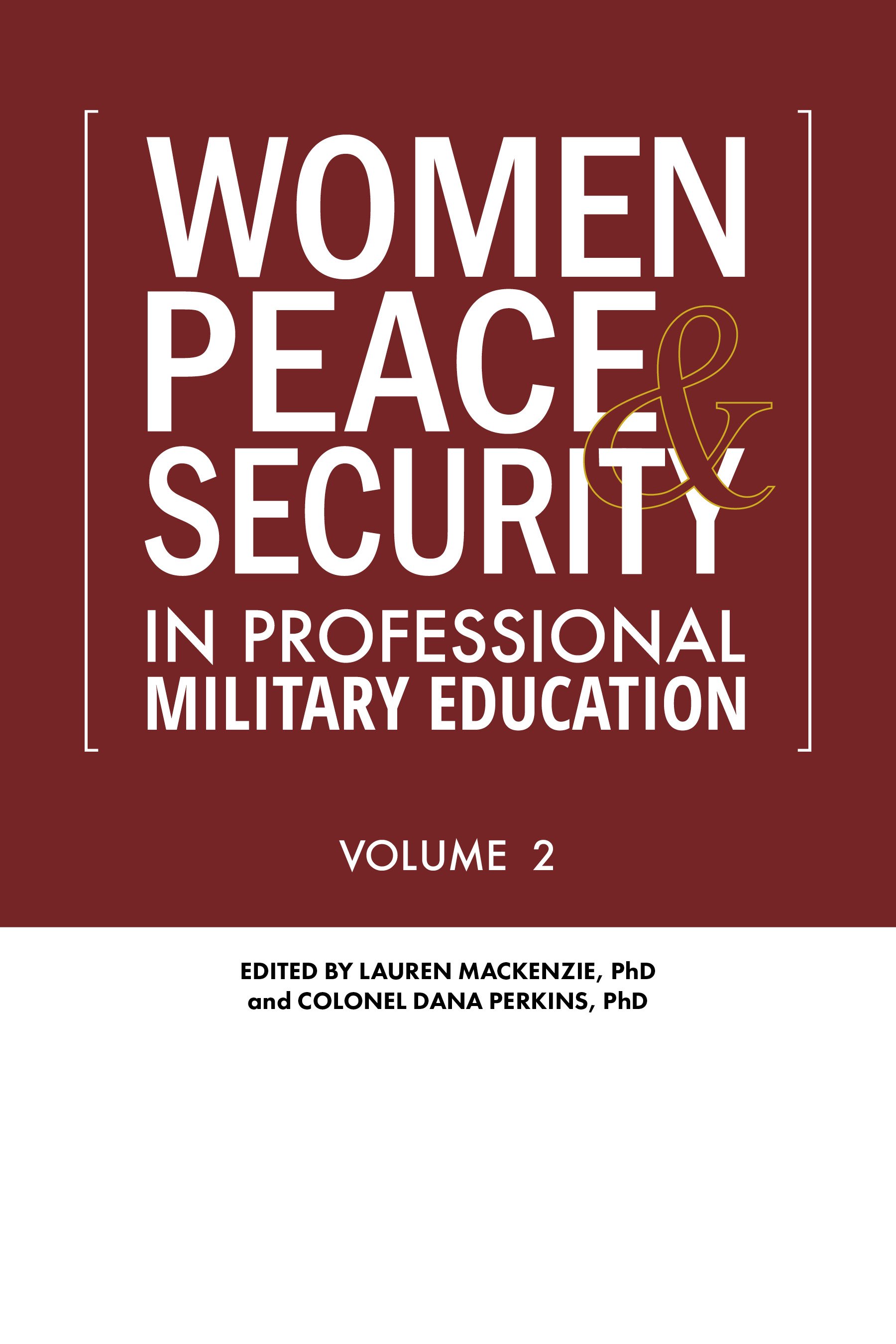
Women, Peace, and Security in Professional Military Education, vol. 2
Edited by Lauren Mackenzie and Col Dana Perkins
The Women, Peace, and Security (WPS) Agenda is a global framework and policy tool that guides national actions addressing gender inequalities and the drivers of conflict and its impact on women and girls. By fostering structural and institutional change, the WPS agenda aims to 1) prevent conflict and all forms of violence against women and girls and 2) ensure the inclusion and participation of women in peace and security decision-making processes to incorporate their specific needs in relief and recovery situations. This volume gathers student papers from the Joint Women, Peace, and Security Academic Forum’s 2022–23 WPS in PME Writing Award program, a best-of selection of informative and empowering work that intersects with Department of Defense equities supporting global WPS principles. Student participants in the Joint WPS Academic Forum hail from prestigious DOD academic institutions, and this monograph shows how the strategic leaders of tomorrow embrace WPS today, offering a strong indication of how WPS principles will be implemented over time and how they will influence the paradigm of peace and security and our approaches to conflict prevention and resolution.
 The Boundaries of War
The Boundaries of War
Local and Global Perspectives in Military History
Edited by Lee L. Brice and Timothy M. Roberts
The expansion of trade and communication networks has been active since the fifteenth century and has had an undeniable impact on connecting military activity around the world. This fact is visible in the historical record, but has it in the last several decades transformed the historiography of military history? The Boundaries of War offers a discussion on whether the transnational turn in historical scholarship suggests that all warfare is derivative of larger global patterns, or if there are local, regional, or national ‘ways of war’ that differentiate conflict within that certain geographical space, which historians should acknowledge. The authors consider how much military historians should focus on local or idiosyncratic factors to explain their subject matter and whether they should consider global phenomena in their research.
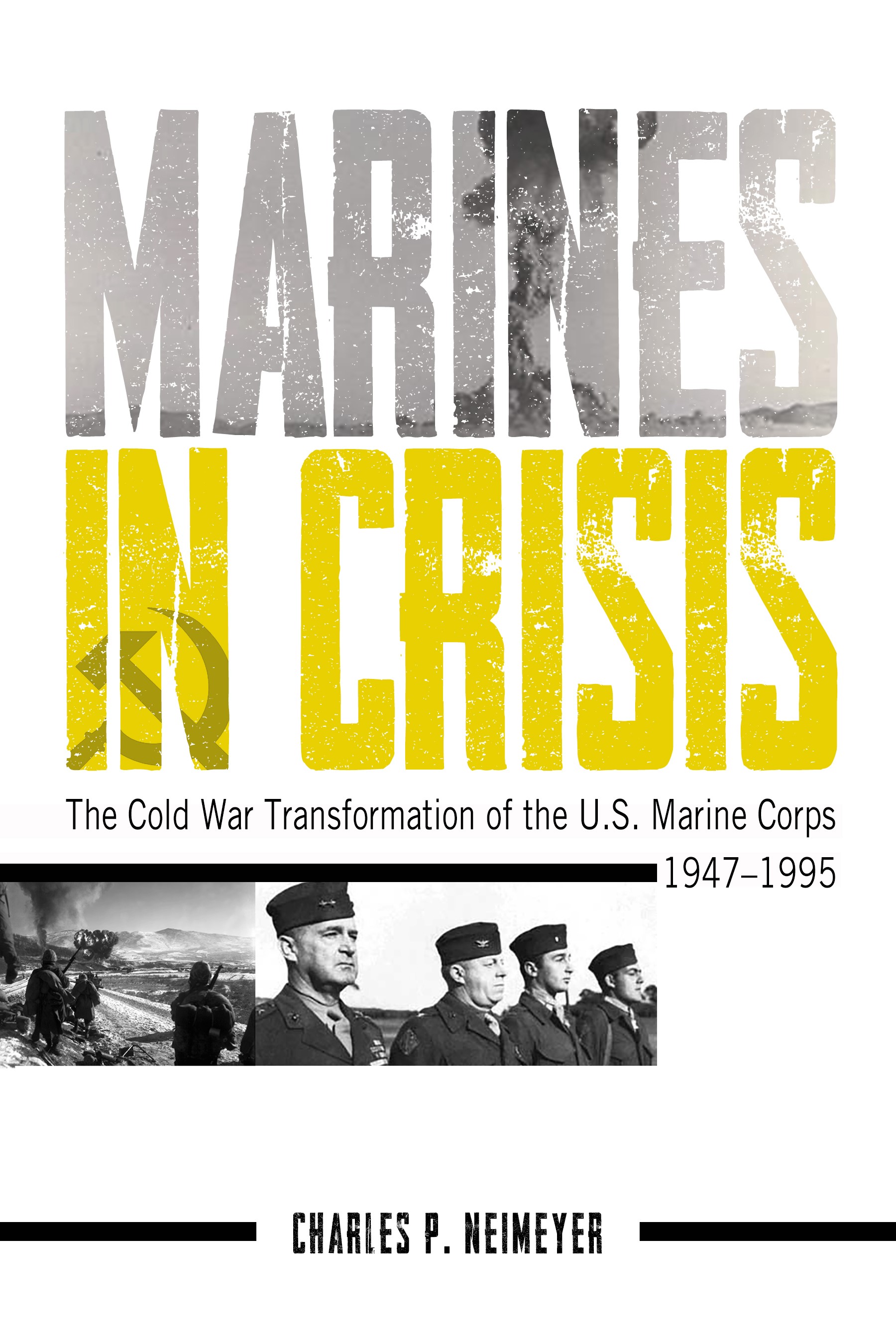 Marines in Crisis
Marines in Crisis
The Cold War Transformation of the U.S. Marine Corps, 1947-1995
By Charles P. Neimeyer, PhD
Throughout the Cold War and into the 1990s, the Marine Corps faced multiple strategic inflection points. Some of these moments were fights for institutional survival, some were based on emerging technology or internal upheaval, while others were more concerned with developing operational doctrine. When compared to the development of its amphibious warfare doctrine between World War I and World War II, these Cold War decisions related to the Marine Corps came about at an astonishing pace. Many of these post–World War II moments came only after painful experiences in increasingly complex and multidimensional Joint combat operations or humanitarian interventions, where international politics, rapidly changing technology, new societal norms, and even culture played an ever-larger role on the battlefield. For the Marine Corps, the Cold War and beyond seemingly required its senior leaders to predict the rapid-fire changes that impacted the new way of war and evolving politics of conflict. In response, those leaders continually transformed the Marine Corps to ensure it played a significant role in U.S. military matters.
 Power Projection
Power Projection
Proceedings from the 2022 Strategic Landpower Symposium
Edited by Colonel Gregory Cantwell, William Barry, and Major Justin Magula
This volume serves as the culmination of many months of preparation and detailed research for the 2022 Strategic Landpower Symposium at the U.S. Army War College in Carlisle, Pennsylvania. During the symposium, participants examined the challenges of intelligence, sustainment, leadership, homeland defense and homeland security, information operations, irregular warfare, security force assistance, special operation forces, partnership programs, strategic guidance, and future trials. This book collects this important research and hopefully inspires new ideas for scholars to continue researching and thinking about future challenges to create novel concepts to share later.
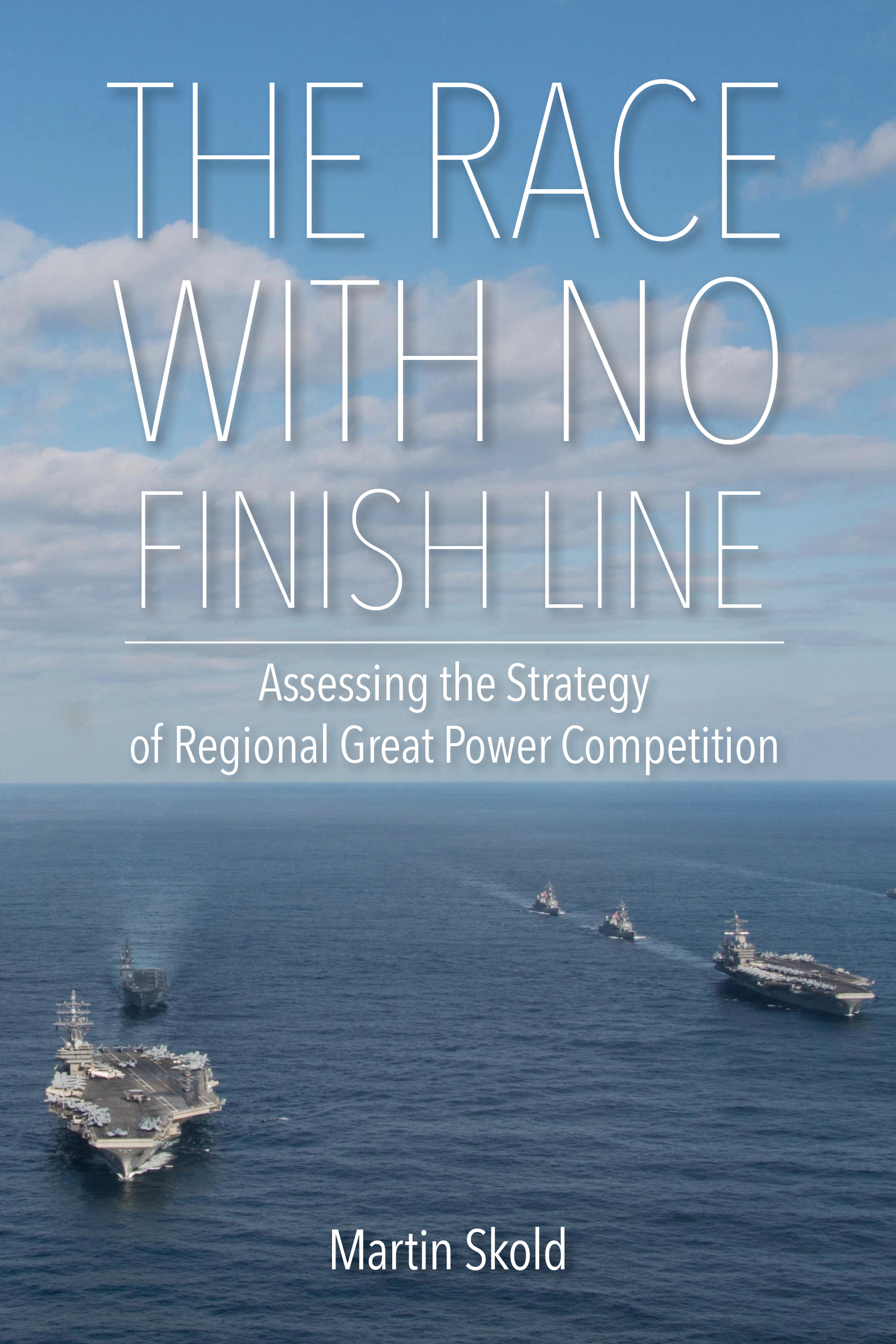 The Race with No Finish Line
The Race with No Finish Line
Assessing the Strategy of Regional Great Power Competition
by Martin Skold
The Race with No Finish Line offers a framework for understanding the strategies of states engaged in competition for regional hegemony. Employing insights drawn from business strategy, the author argues for an essentially asymmetric understanding of fundamental policy goals for states engaged in competition for control of a region of the globe, with one state attempting to maintain a dominant position and another attempting, by focusing limited resources, to supplant it.
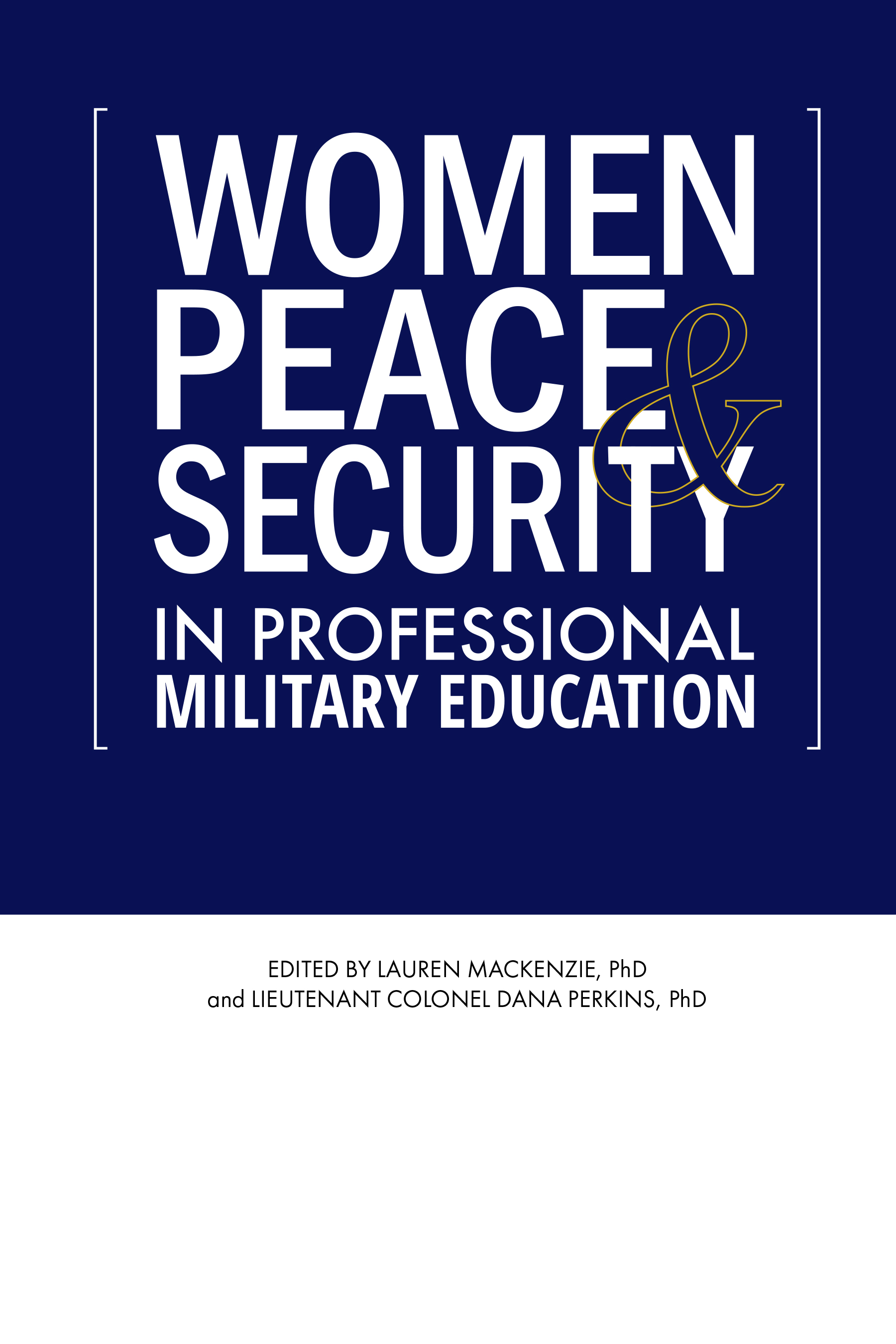 Women, Peace, & Security in Professional Military Education
Women, Peace, & Security in Professional Military Education
Edited by Lauren Mackenzie, PhD and Lieutenant Colonel Dana Perkins, PhD
This volume gathers together student papers from the Joint Women, Peace, and Security Academic Forum's 2021 WPS in PME Writing Award program, a best-of selection of informative and empowering work that intersects with Department of Defense equities supporting global WPS principles. Student participants in the Joint WPS Academic Forum hail from prestigious DOD academic institutions, and this monograph shows how the strategic leaders of tomorrow embrace WPS today, offering a strong indication of how WPS principles will be implemented over time and how they will influence the paradigm of peace and security and our approaches to conflict prevention and resolution.
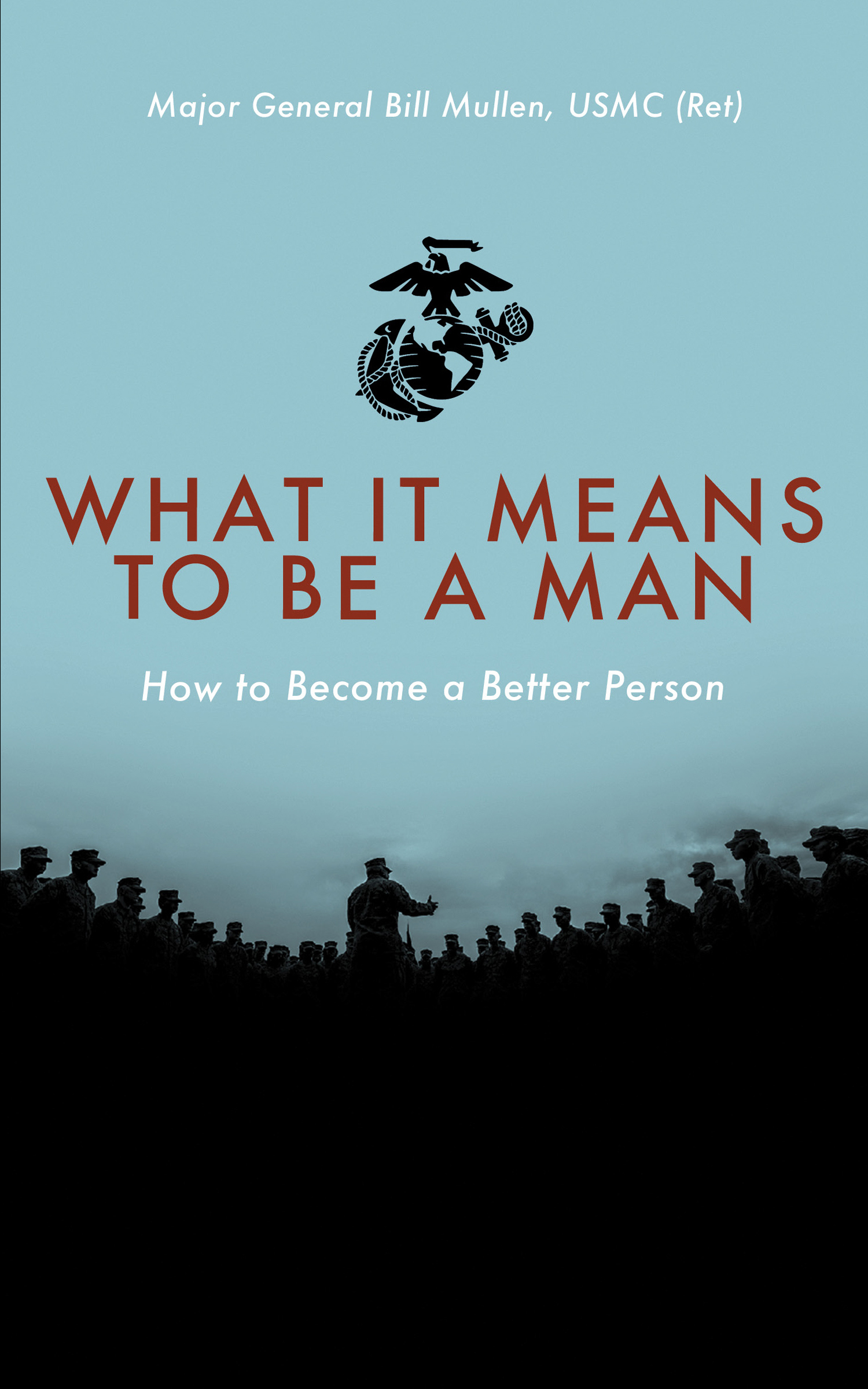 What It Means to Be a Man
What It Means to Be a Man
How to Become a Better Person
by Major General Bill Mullen (Ret)
We all have flaws because, as humans, we are all inherently fallible. If we can focus on becoming better people in life, it will likely help mitigate that fallibility. What It Means to Be a Man focuses on the concept that if all young Marines internalize the words and thoughts here, and use them to not only be better Marines but more importantly, better people, then we can be a much better Service overall. The U.S. Marine Corps and the American people have invested so much time, effort, and money into them that they are more than worth the effort to make them better people now but also when they take off the uniform and return to civilian society.
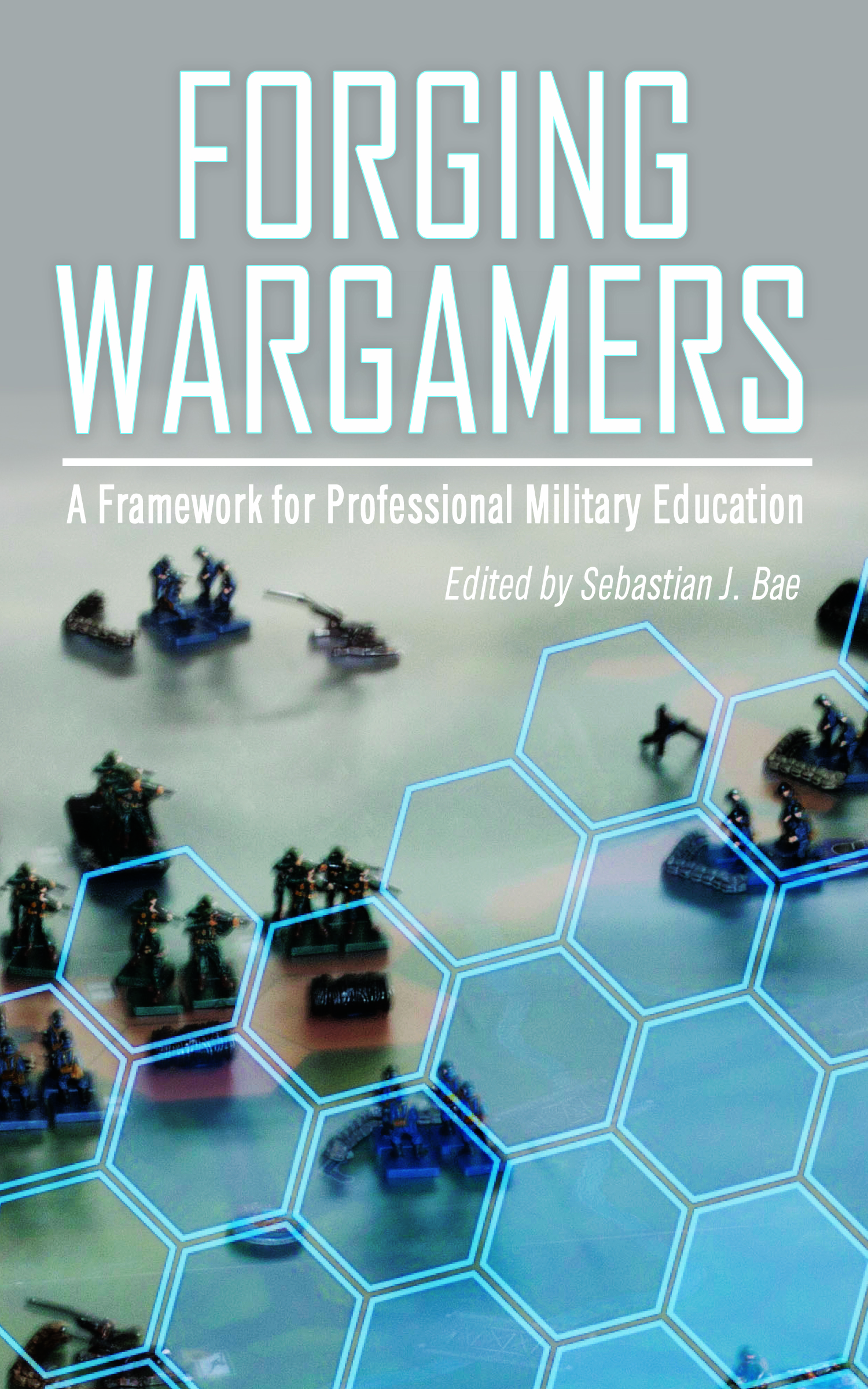 Forging Wargamers
Forging Wargamers
A Framework for Professional Military Education
Edited by Sebastian J. Bae
How do we establish or improve wargaming education, including sponsors, participants, and future designers? The question stems from the uncomfortable truth that the wargaming discipline has no foundational pipeline and no established pathway from novice to master. Consequently, the wargaming community stands at a dangerous precipice at the convergence of a stagnant labor force and a patchwork system of passing institutional wargaming knowledge. Unsurprisingly, this can lead to ill-informed sponsors, poorly scoped wargames, an unreliable standard of wargaming expertise, and worst of all, risks the decline of wargaming as an educational and analytical tool. This fundamental challenge is a recurring theme throughout Forging Wargamers and each author offers their own perspective and series of recommendations.
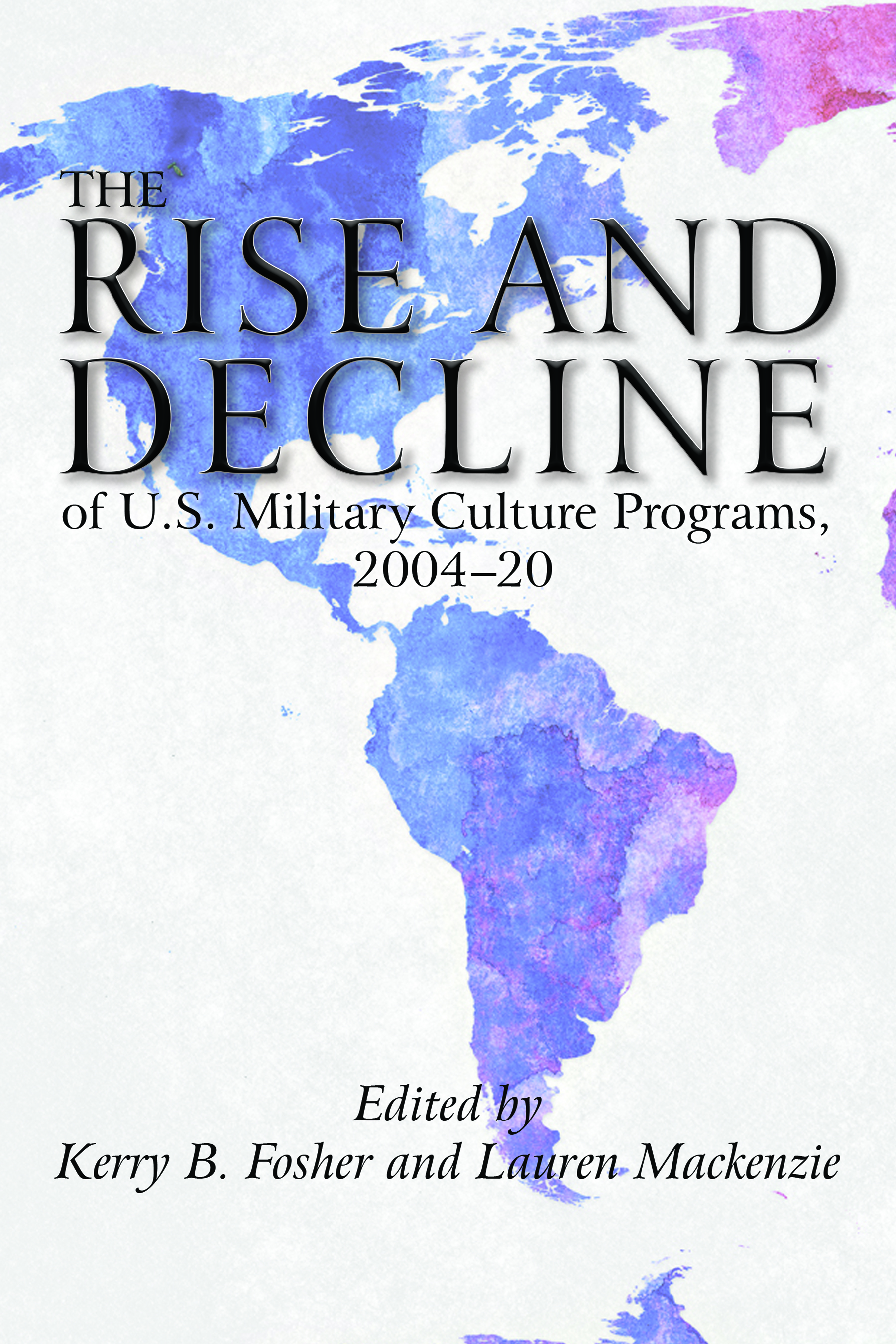 The Rise and Decline of U.S. Military Culture Programs, 2004-20
The Rise and Decline of U.S. Military Culture Programs, 2004-20
Edited by Kerry F. Fosher, PhD, and Lauren Mackenzie, PhD
This book compiles the insights and findings of some of the most determined and resourceful scientists, scholars, and practitioners engaged in the programs to inculcate the new capabilities in the early twenty-first century. The authors do not gloss over failures and dead ends. Rather, their expectation is that by presenting the bad with the good, they can help future generations engaged in the same task avoid their pitfalls and build on their work. More importantly, the authors hope that their writing might reach those who are still engaged in building cultural capabilities and that they will find encouragement to continue this essential work.
An Annotated Guide to Tactics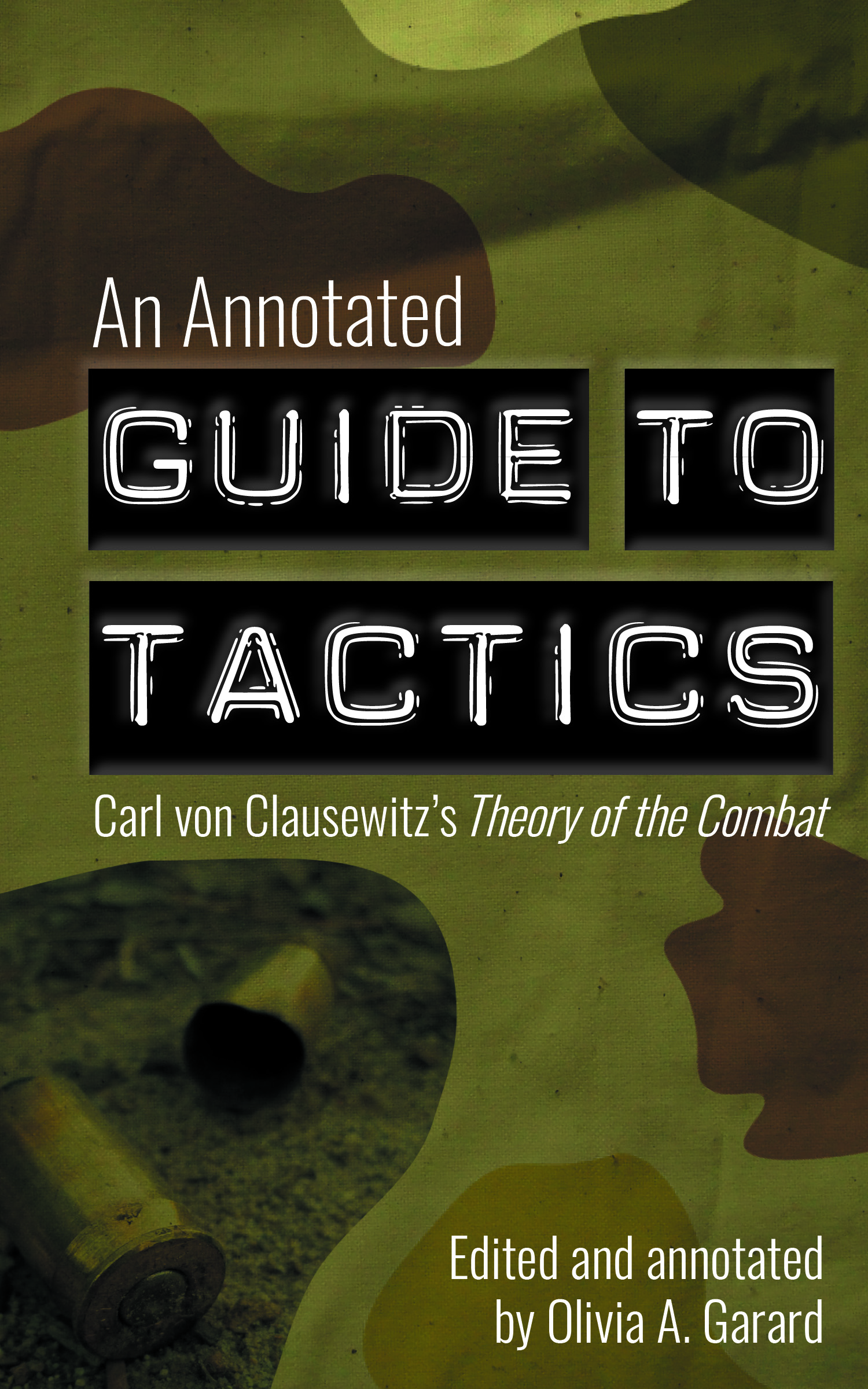
Carl von Clausewitz's Theory of the Combat
Edited and Annotated by Olivia Garard
The philosophy on which the Marine Corps’ seminal warfighting doctrine is based rests on a tradition of professional military scholarship that reaches back to Carl von Clausewitz’s treatise On War. Clausewitz’s lesser-known and often-misunderstood Guide to Tactics, republished here for the first time as a standalone English text with critical annotations, serves as the foundation of the Marine Corps’ warfighting philosophy and provides a guide to thinking about the nature of tactics and combat for the modern warfighter.
Khaos Company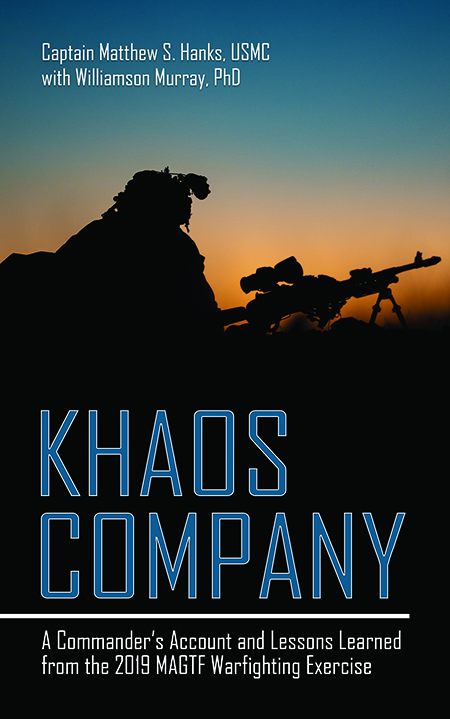
A Commander's Account and Lessons Learned from the 2019 MAGTF Warfighting Exercise
By Captain Matthew S. Hanks, USMC, with Williamson Murray, PhD
Khaos Company offers a short story written with the intent to provide Marines with the perspective of what it is like to operate and fight at the company- and small-unit levels in operations of such a large scale and scope. This is a story about how a small yet cohesive company of Marines experienced chaos, friction, uncertainty, surprise, failure, success, relationships, and executed the maneuver warfare principles outlined in the Marine Corps’ doctrinal warfighting philosophy.
Oil & War
How the Deadly Struggle for Fuel in World War II Meant Victory or Defeat
By Robert Goralski and Russell W. Freeburg
The world's economy runs on oil. People steal for it. Nations kill for it. To win a war, the victor must have enough oil to fuel their tanks, ships, and planes. One of the great untold stories of World War II is about the strategic decisions and combat for the control of enough oil so that the Axis powers could wage an aggressive war. Conversely, the Allied powers were determined to keep oil from the Axis. Oil & War originally published in 1987, was the first book to explain this intricate dance of death from the viewpoints of both the Axis and Allied sides. Adolf Hitler began planning his grab for oil-producing lands in the 1930s; he also started building plants capable of producing synthetic fuels. The Japanese had their plans too. The Americans, English, and Australians had to counterpunch. They very nearly lost the war because they did not move quickly enough. The race was far closer than previously believed. Truth is stranger than fiction. Novels and wargames based on the strategies for oil have captured the public's attention. But here is the real story. This anecdotal narrative about the important role that oil played in World War II provides a view of the forces that controlled the greatest war in history-and a stunning analysis of the importance of oil in terms of world peace for years to come.
The Marine Corps War College Strategy Primer
Strategy Primer
expanded edition
The Marine Corps War College Strategy Primer not only provides students an overview of the elements of strategic logic but also introduces a cognitive model for developing and assessing strategy by leveraging innovative design methodologies and other critical and creative thinking approaches. In short, this primer aids in forging strategically minded warfighters who understand how the military instrument fits within a whole-of-government strategy. Only then can MCWAR’s historical case studies effectively teach the art and science of the “strategy bridge,” nesting military options in support of policy ends in shared pursuit of a better peace.
Political Warfare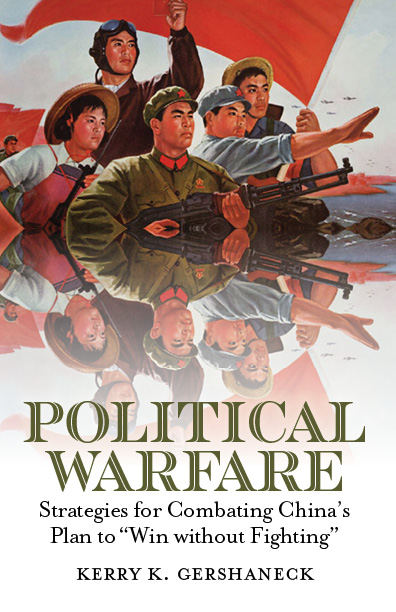
Strategies for Combating China's Plan to "Win without Fighting"
By Kerry K. Gershaneck
Political Warfare provides a well-researched and wide-ranging overview of the nature of the People's Republic of China (PRC) threat and the political warfare strategies, doctrines, and operational practices used by the Chinese Communist Party (CCP). The author offers detailed and illuminating case studies of PRC political warfare operations designed to undermine Thailand, a U.S. treaty ally, and Taiwan, a close friend.
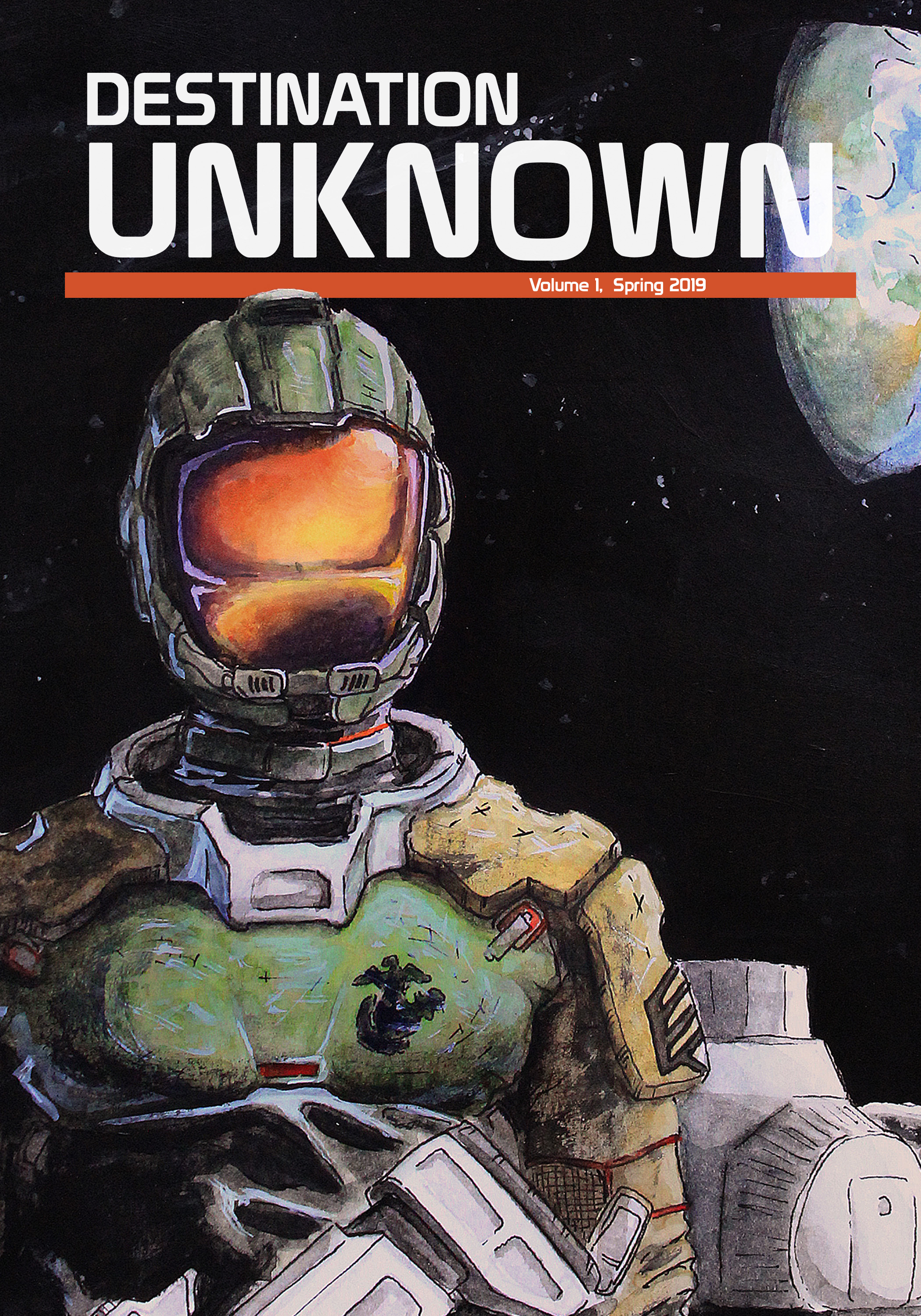
Destination Unknown
Volume 1, Spring 2019
Destination Unknown is the first graphic novel used to explore the future of the Marine Corps written and illustrated by Marines. The stories in this graphic novel explore such topics as Marine-manned satellites, laser communication, and artificial intelligence (AI) selecting potential recruits and assisting Marine Corps Special Operations Command (MARSOC) operations in real time.
Destination Unknown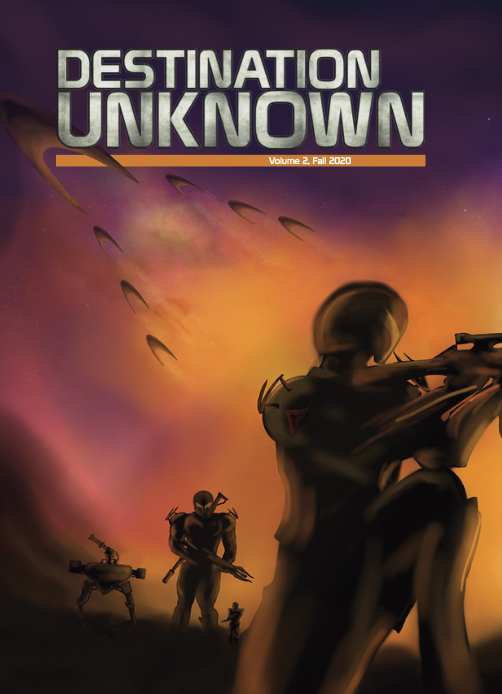
Volume 2, Fall 2020
Destination Unknown volume II is the second graphic novel exploring the future of the Marine Corps written and illustrated by Marines. The stories in this volume explore topics such as the response to an engineered virus, a microchip with a secret purpose found on board a Navy ship, the psychological issues that drone pilots face, and the use of supercomputers to speak to Commandants past.
Destination Unknown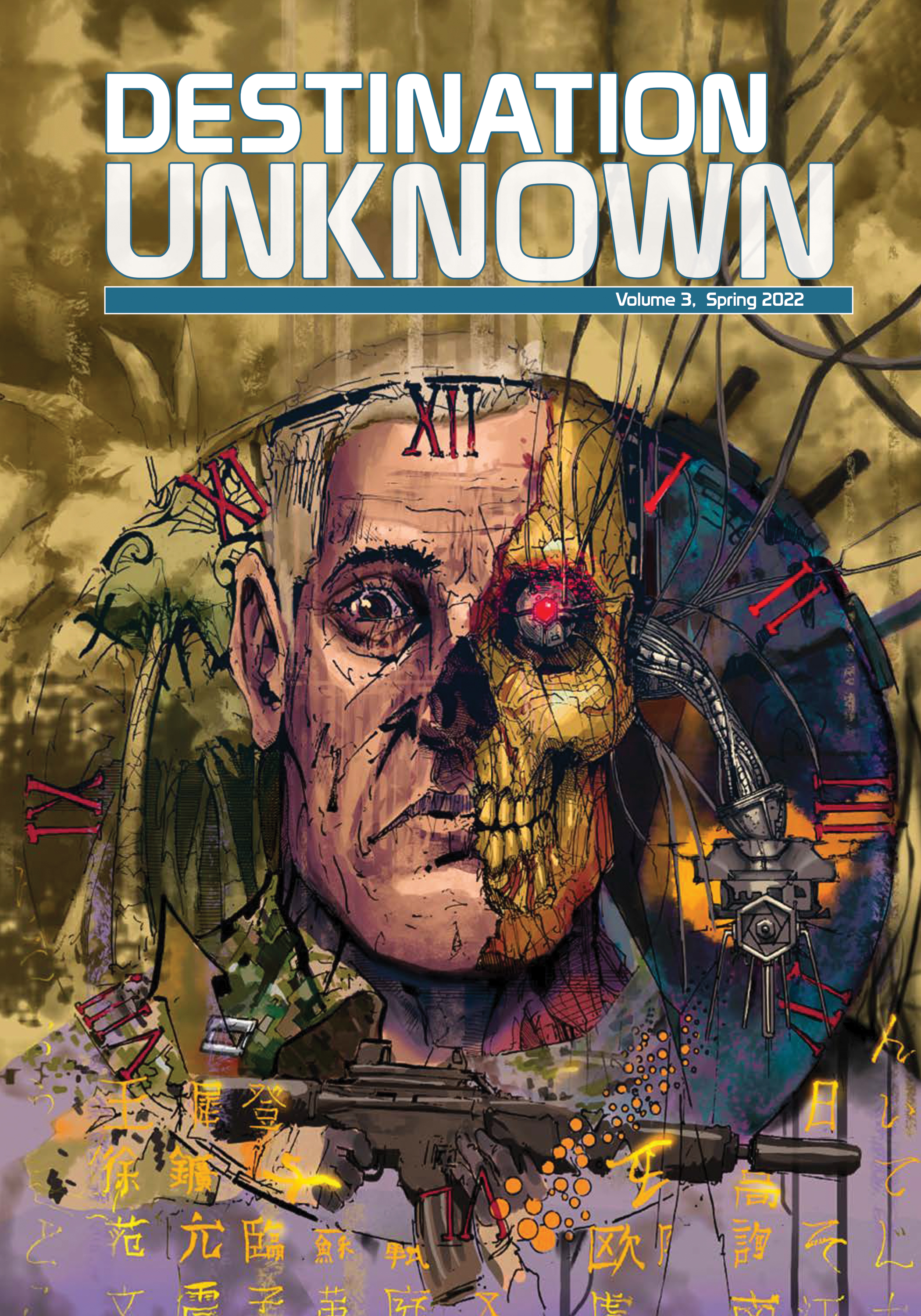
Volume 3, Spring 2022
Destination Unknown volume III is the third graphic novel exploring the future of the Marine Corps written and illustrated by Marines. The stories in this volume touch on the psychological impacts from human-machine teaming, artificial intelligence systems gone astray, the future of medicine and trauma management, gender integration in Marine Corps boot camp, life on an arctic military outpost, and even a story about a robotic infantry dog.
On Contested Shores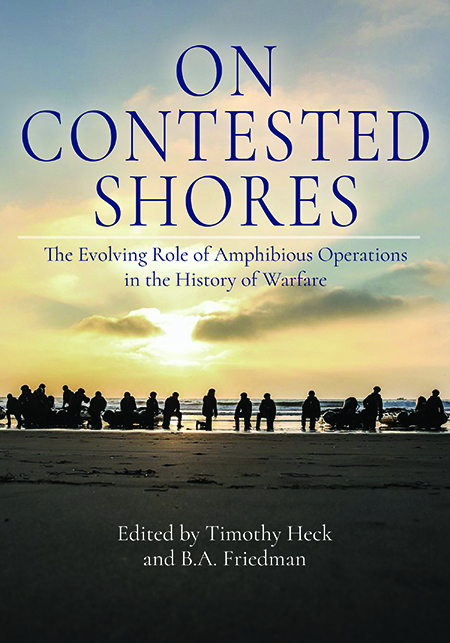
The Evolving Role of Amphibious Operations in the History of Warfare
Edited by Timothy Heck and B.A. Friedman
The basis for On Contested Shores has been under construction since before the Commandant released the planning guidance. As career Marine officers, who spent very little time at sea, the editors have long been concerned that the Marine Corps was becoming too landcentric, heavily reflecting the characteristics of a second land army. This has been true since 1991, when the Marine Corps participated in a land campaign in Iraq, and especially since 2001, when it participated in three land campaigns: Afghanistan, Iraq, and Syria. To fight these battles, the Marine Corps became heavier, upgraded equipment, and generally focused on counterinsurgency tactics vice amphibious warfare. While the Marine Corps always steps up to fight alongside the U.S. Army, its purpose is naval campaigns fought alongside the U.S. Navy. This book is in part a way to help figure out how to regain and maintain the skills necessary for maritime operations.
On C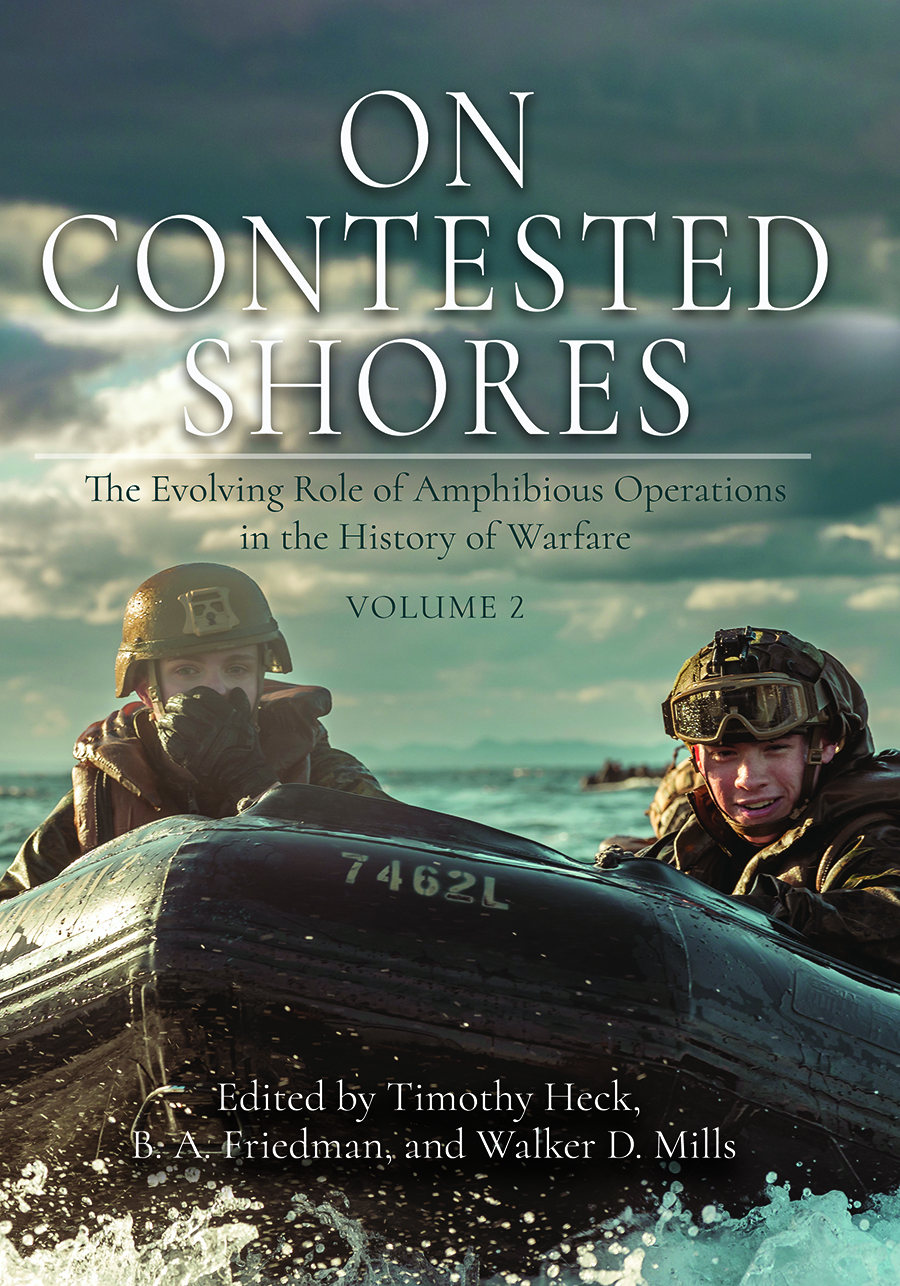 ontested Shores
ontested Shores
The Evolving Role of Amphibious Operations in the History of Warfare
VOLUME 2
Edited by Timothy Heck, B.A. Friedman, and Walker D. Mills
The second volume of On Contested Shores builds on the success and reception of the first, providing historians, theorists, and especially practitioners with a new resource to explore the history and the future of amphibious operations. This second volume arrives as the U.S. Marine Corps’ Force Design 2030 effort reaches a faster pace under a new Commandant. New original scholarship and research provides readers with a wealth of examples, new information about historical case studies, and deeper examinations of a wider array of amphibious issues. No other volume or set on amphibious operations provide such a diverse array of case studies and insights by leading researchers from around the world. Since the release of the first volume, shores are newly contested in Ukraine and in the Red Sea, and preparations for a potential amphibious invasion of Taiwan have reached a fevered pitch. This second volume digs deeper into the epic history of amphibious operations and provides more insights into how they can be executed in the future.
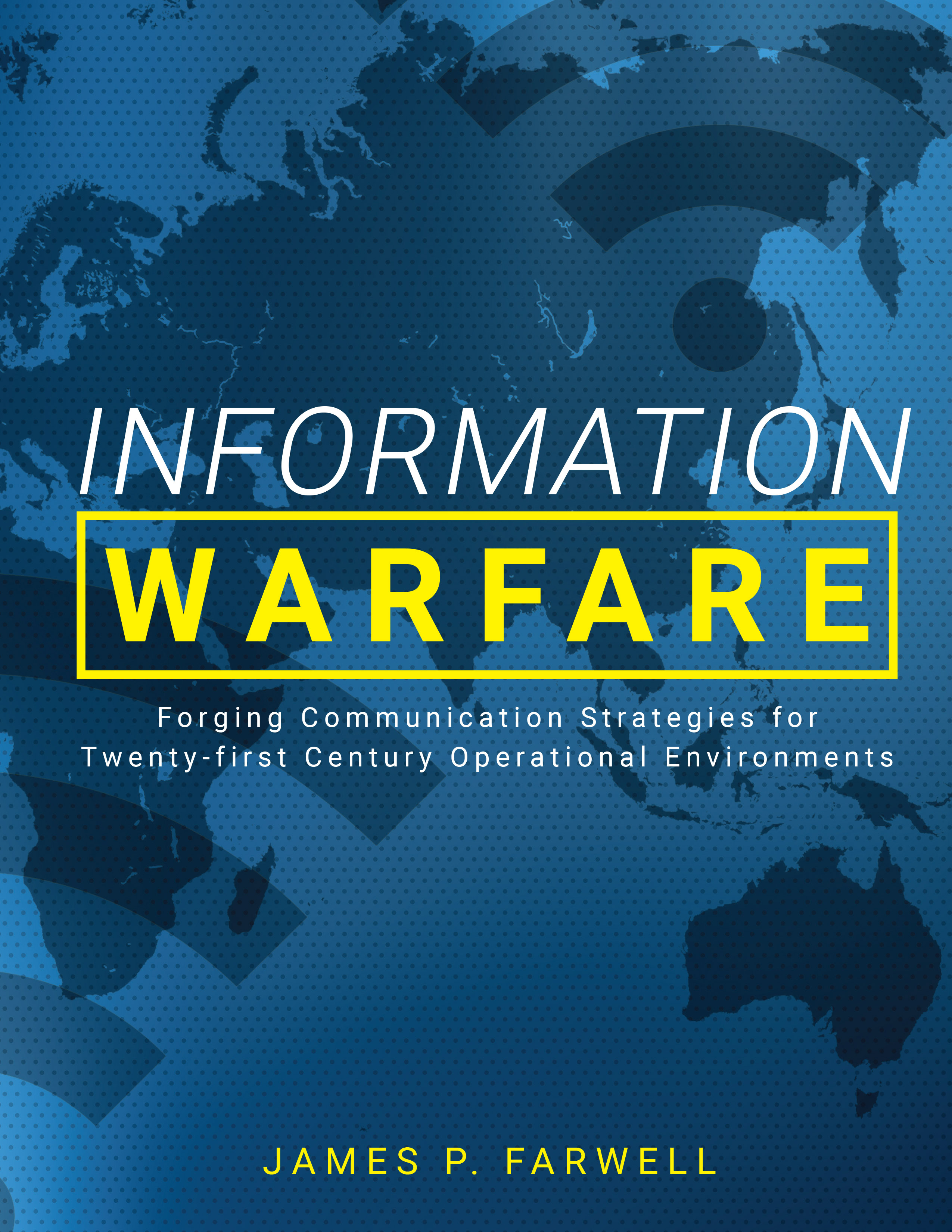 Information Warfare
Information Warfare
Forging Communication Strategies for Twenty-first Century Operational Environments
By James P. Farewell
Great political and military leaders understand that communication strategies are key to victory in any conflict. Seizing the narrative can enable victory while failure to do so yields that advantage to the adversary. Gone are the days when competing armies confronted one another across battlefields. The information environment has made engagements and conflict both local and global all at once such that—as never before—information warfare is critical to victory. Understanding culture, history, local political dynamics, the interactions of different players, and the need to forge cohesive communication plans at the strategic, operational, and tactical levels matters more than ever to commanders and operators. In Information Warfare, James P. Farwell describes how commanders and operators must and can define winning outcomes and the strategies, operations, and tactics to achieve them. He lays out concrete, actionable steps to get results and places them in historical context, then provides a workbook to assist readers in devising communication strategies that produce victory in the sphere of information warfare.
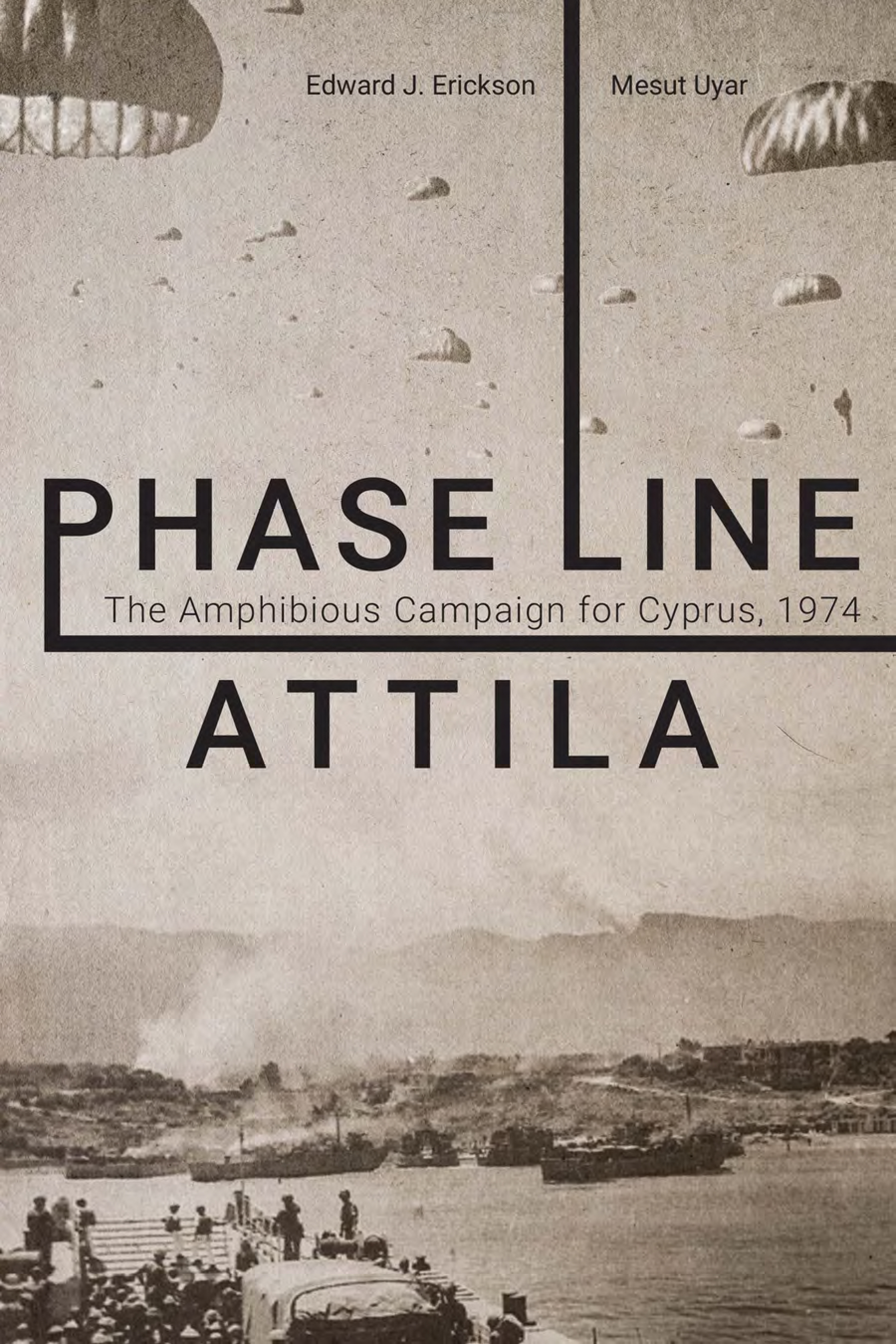 Phase Line Attila
Phase Line Attila
The Amphibious Campaign for Cyprus, 1974
By Edward J. Erickson and Mesut Uyar
Phase Line Attila describes the successful Turkish amphibious invasion of Cyprus, which culminated in the partitioning of the island of Cyprus into Turkish- and Greek-Cypriot zones. The invasion is an under-studied amphibious operation that occurred in the post World War II era. The invasion was prompted by the increasing levels of violence between Turkish and Greek Cypriots, which led to the involvement of both Greece and Turkey in the island's affairs. This book is a nuanced examination of the successful Turkish amphibious operation to carve out a Turkish-Cypriot zone in northern Cyprus in Operation Yıldız Atma-4.
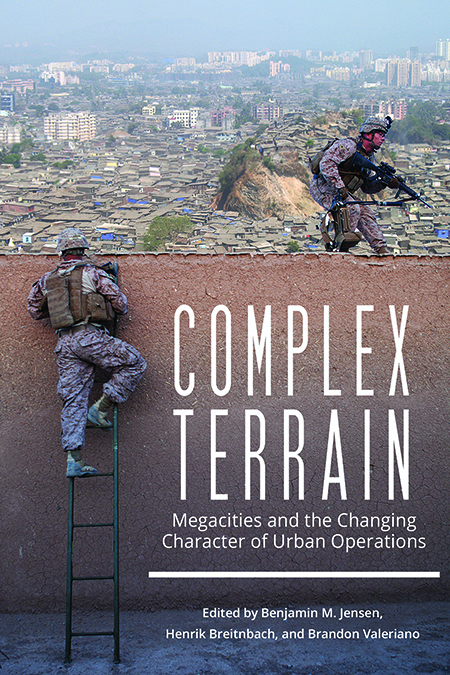 Complex Terrain
Complex Terrain
Megacities and the Changing Character of Urban Operations
Edited by Benjamin M. Jensen, Henrik Breitenbauch, and Brandon Valeriano
This edited volume, composed by military professionals in the Gray Scholars Program at Marine Corps University, describes the changing character of urban operations. The pattern of human settlement and interaction is changing and the future is urban. Because the majority of the world’s population lives within cities, the future of strategic competition and conflict reside there as well.
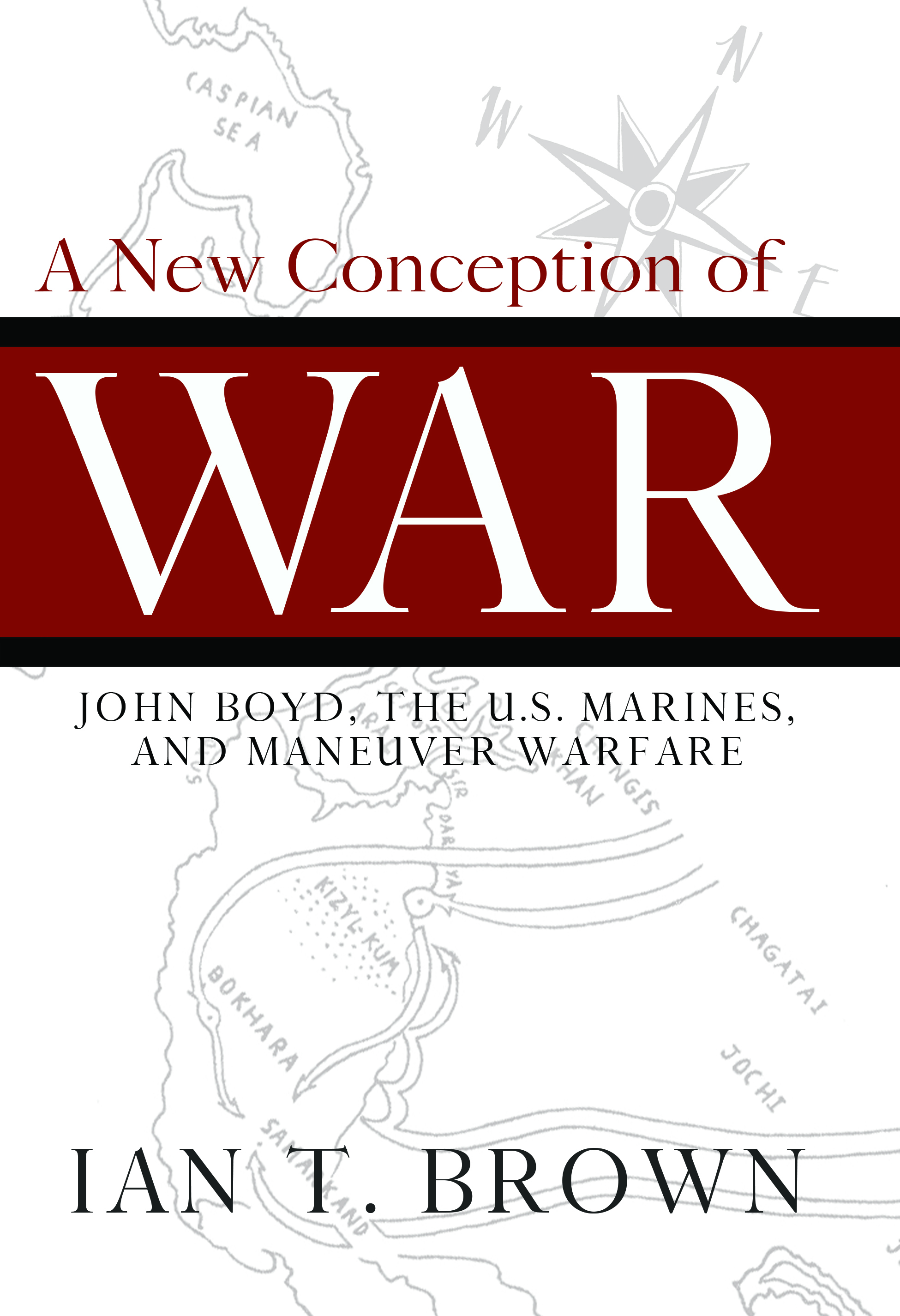 A New Conception of War
A New Conception of War
John Boyd, The U.S. Marines, and Maneuver Warfare
By Ian T. Brown
A New Conception of War traces this story from the post–Vietnam War years to the present. The first path was forged by U.S. Air Force colonel John R. Boyd, whose ideas on warfare were shaped by a military career during the height of the Cold War and his own passion for challenging conventional wisdom in the search for new and useful ideas. The second path was navigated by many thinkers within the Marine Corps during a period of institutional soul-searching after Vietnam, driven by the Corps’ imperative to adapt to the exigencies of the day and thus remain a useful contributor to national defense. Drawing on new and previously unpublished material from the major players of this period, including a full transcript of Boyd’s “Patterns of Conflict” lecture, A New Conception of War captures a period of remarkable intellectual ferment within the Marine Corps and the development of a unique conceptual framework for warfighting that continues to inspire Marines today.
 Aspects of Leadership
Aspects of Leadership
Ethics, Law, and Spirituality
By Carroll Connelley and Paolo Tripodi
Aspects of Leadership brings together scholars from different disciplines and practitioners from a broad variety of backgrounds to address three key areas: ethics, law, and spirituality. The essays in this book are intended to inform leaders, and the general public, about the challenges of ethical decision making, the application of the law of war, and the important role of spirituality. Aspects of Leadership will educate readers and generate important questions that leaders should ask themselves, encouraging them to reflect on their pivotal roles in these three areas.
 U.S. Marines and Irregular Warfare, 1898-2007
U.S. Marines and Irregular Warfare, 1898-2007
Anthology and Selected Bibliography
By Colonel Stephen S. Evans
This anthology joins a growing number of works whose topic is counterinsurgency and irregular warfare. Continuing discussion and study of these subjects is of critical importance to the ongoing efforts of the United States and its allies in the Global War on Terrorism. The articles selected for inclusion in this anthology all help to illustrate the complexity involved in conducting counterinsurgency and irregular war efforts.
 The Best-Laid Schemes
The Best-Laid Schemes
A Tale of Social Research and Bureaucracy
By Seymour J. Deitchman
The Best-Laid Schemes contains two overarching lessons for current and future efforts. First, social scientists and defense personnel failed to communicate their constraints and capabilities sufficiently for integration to happen. Social science cannot do everything DOD wants. Some of what military organizations want is not scientifically possible or violates the ethical codes necessary for scientific enterprise. Likewise, DOD, especially the supporting establishment, is not a blank slate onto which scientists can layer current theory, methods, and information.
 Case Studies in Operational Culture
Case Studies in Operational Culture
By Paula Holmes-Eber and Major Marcus J. Mainz
Case Studies in Operational Culture draws together the experiences of 22 field grade military officers from the U.S. Army, Navy, Air Force and Marine Corps, as well the Canadian and Australian military. Applying the cultural concepts described in two previous books in this series—Operational Culture for the Warfighter and Applications in Operational Culture—these cases provide detailed, concrete illustrations of how specific cultural factors had a direct impact on the outcome of military operations.
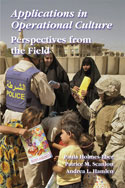 Applications in Operational Culture
Applications in Operational Culture
Perspectives from the Field
By Paula Holmes-Eber, Patrice M. Scanlon, and Andrea L. Hamlen
Applications in Operational Culture: Perspectives from the Field presents six essays by experienced field-grade officers on the challenges, successes, and future warfighting problems of applying culture to military operations. The chapters in this book focus on a spectrum of issues relevant to today’s Marines and other service members. These include essays on the cultural and practical difficulties of training the Iraqi army; understanding tribal factors in Afghanistan; questioning the applicability of Maslow’s hierarchy in Iraqi culture; and developing a cultural training program for the Australian army.
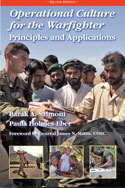 Operational Culture for the Warfighter
Operational Culture for the Warfighter
Principles and Applications
By Barak A. Salmoni and Paula Holmes-Eber
Operational Culture for the Warfighter: Principles and Applications is a comprehensive planning tool and reference. It addresses the critical need of the Marine Corps to provide operationally relevant cultural teaching, training, and analysis. This book links social science paradigms to the needs of Marines using an applied anthropology approach. The text explains how fundamental features of culture (environment, economy, social structure, political structure, and belief systems) can present challenges for military operations in different cultures around the globe.